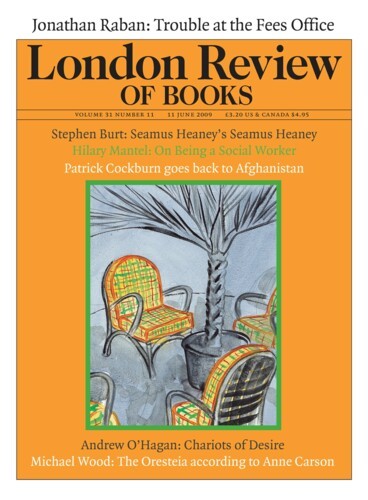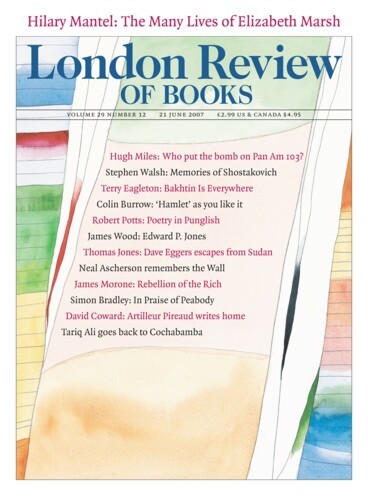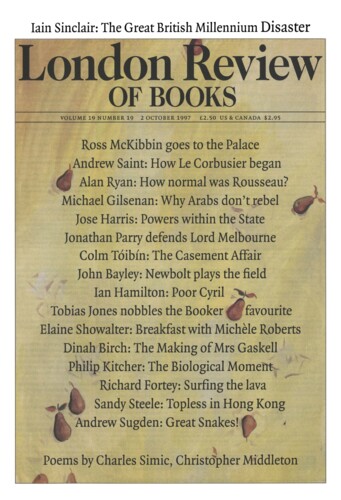Peter Ghosh
Peter Ghosh is a fellow of St Anne’s College, Oxford.
Hamlet Haiku
21 June 2007
Pulling Ranke
15 October 1998
Laid Down by Ranke: defending history
Peter Ghosh, 15 October 1998
Richard Evans hopes that this book will take the place of E.H. Carr’s What is History? and G.R. Elton’s The Practice of History as the ‘basic introduction’ to history as taught in the universities. Evans is a self-declared ‘Rankean’ empiricist, committed to Ranke’s view that facts and documents ‘speak for themselves’. He believes that the proper method for historians today is the same as it has always been, at least since the 19th century, when the rules of historical practice were ‘laid down by Ranke’ and the discipline was established ‘on a professional or scientific basis’. These rules hinge on source criticism and the proposition that the assertions of historical writing are verifiable. ‘History is an empirical discipline,’ Evans argues; the history we write ‘certainly will not be objective, but is nevertheless true’; we ‘really can find out’ how the past happened, although our conclusions will always be ‘less than final’. Such ‘good rules’, according to Evans, ‘transcend scholarly communities and do not therefore depend on their acceptance by them’. But is it possible in the Nineties for a Rankean empiricist to supply an adequate account of history as a scholarly discipline?‘
Gross Hypocrisy Awards
2 October 1997
Read anywhere with the London Review of Books app, available now from the App Store for Apple devices, Google Play for Android devices and Amazon for your Kindle Fire.
Sign up to our newsletter
For highlights from the latest issue, our archive and the blog, as well as news, events and exclusive promotions.




